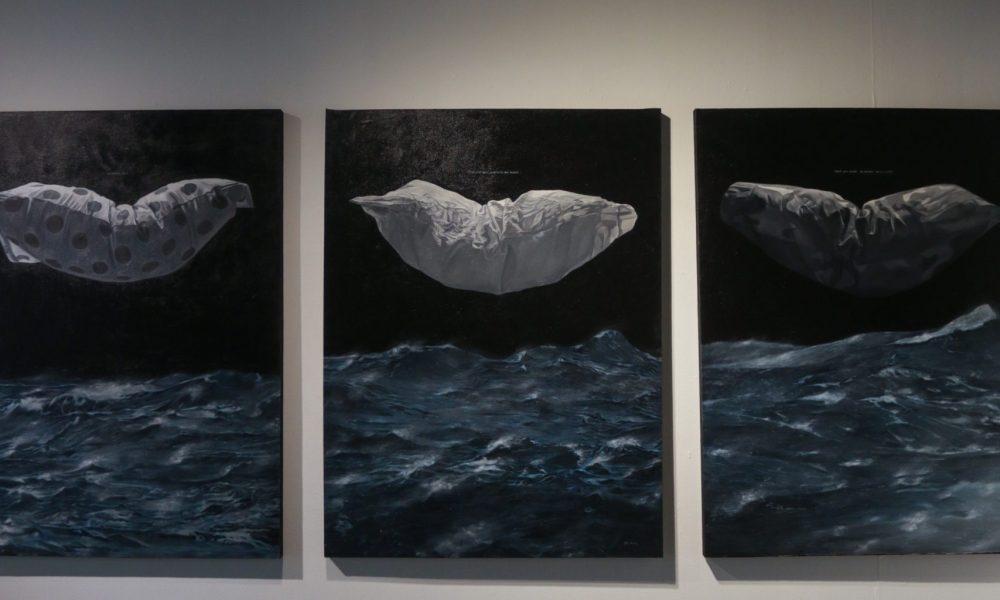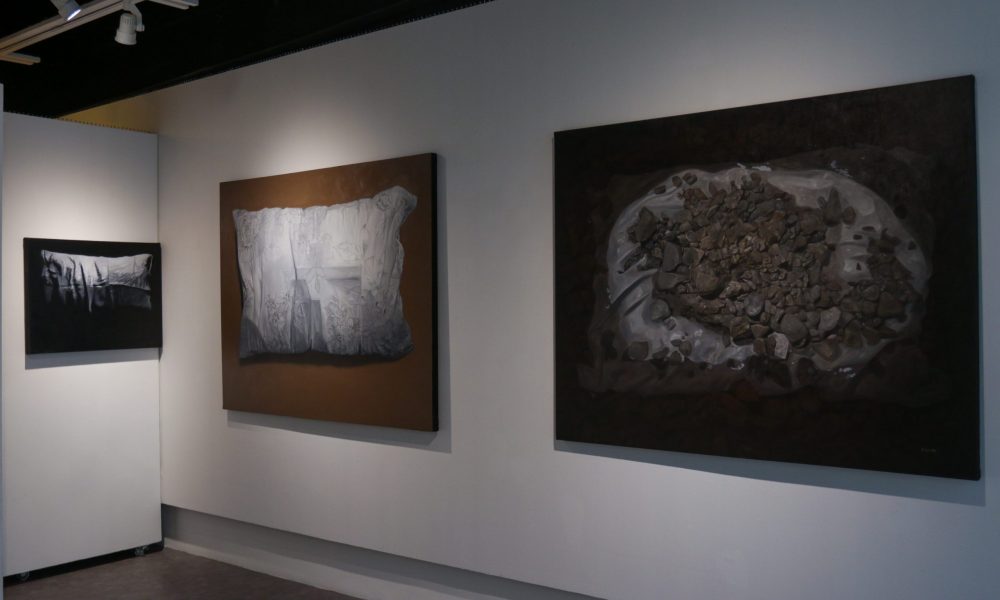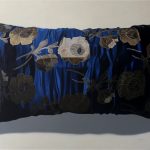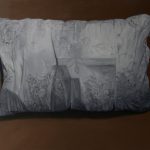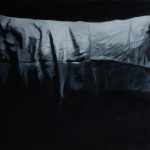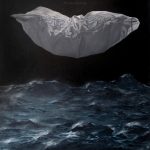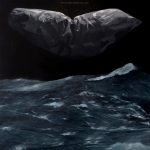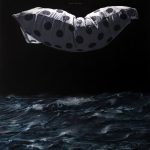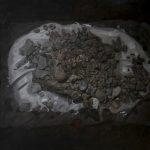WHEN THE DAY ENDS
JASON DELGADO
DECEMBER 16, 2020
PILLOW TALK
Written by Jay Bautista
In Molo, Iloilo most of the youth do not sleep soundly these days. Their constant exchange of bric-a-brac violence among gangs have heightened tension and caused anxiety among its members, and is evident in how they sleep with knives tucked in their pillows to protect them- in case the inevitable happens.
Though Jason Delgado is not directly involved yet, they are all his friends, as he has been a witness to this grim forced habit. As an artist, he is sensitive enough to paint what bothers him. It was for a group exhibition in 2017 at the Museo ng Iloilo that he showed his first pillow as theme masterpiece- he titled it The Struggle Begins When the Day Ends.
Delgado went to develop further this bespoke visual style all relating to his anxieties and issues affecting his young life. He has painted them all, as When the Day Ends has now become the title of the first solo exhibition at Art Verité.
An obvious culprit why Delgado paints pillows is because sleep has eluded him in preparation to be a full pledged artist as he looks back on his life in these past months of the ongoing pandemic. He is even more active when he forces himself to rest—this is where his mind grapples with artistic concepts where he reminisces his past experiences and its painful lessons. Simultaneously pursuing to be a licensed architect, Delgado is committed to what is worth doing and engages it in his own terms.
An irony lies in that there are a multitude of practicing artists in Iloilo, yet there is a dearth of Fine Arts schools in Iloilo (there is only one). Like Delgado, many take the creative path through architecture or even architectural draftsmanship.
In Overtime, Delgado provides you with a glimpse of how he mixes painting and architecture together. The architect in him reveals how he carefully plans his pieces by random sketches while anticipating possible foul ups that come his way be it electrical, plumbing or structural. In painting, he is painstakingly meticulous to every detail, even on how the creases folds up or is thrown in the air that makes up his emphatic composition exact.
Empty revisits a recent episode Delgado was faced with on his road to being an architect. Last January, he and three other architect hopefuls started attending review sessions in Manila. As the Covid pandemic worsened, however, they were abruptly halted when the national government declared a lockdown come March 15. As the runabout scourging for tickets on their flight to go back home, they found a cheaper one, but they had to take it at the Clark international Airport. Cash strapped and already emotionally drained, they had to hurry and catch it on the day before the nationwide lockdown was imposed. It will only mean they have to spend the evening of the 14th of March to catch it. With a fully occupied lounge, they just settled on the floor along the airport corridors with their bag bearing a few clothes and architecture books in tow. The experience so marked Delgado that he decided to paint it in stark black and white.
Delgado is the youngest in a sibling of four. His mother, Erna, is the epitome of faith having devoted her life to the service of the Catholic Church. Plain, Pure and White reflects her abiding religiosity as seen in the embossed cross.
Their family traces their roots in Bacolod; however, it was in Iloilo that his father, Ronaldo, found his calling in a rattan furniture venture. Delgado honors him in Sharp and Polished as how he remembers his father who passed on after a lingering bout with cancer. His father spent his dying three months in Bacolod under the care of Delgado’s sister who was a nurse in a hospital there.
In the Rattan industry, sharpness of skill is essential in delivering polished results, which in turn determines the amount of patrons a craftsman can get. Delgado understood this deeply because of his father, and the flowers in his art are his way of honoring his great father.
In Delgado’s head, pillows were a symbol of vulnerability – and these became his silent confidants as he lays his head down in his bed. They have become his creative venues for possibilities of form and meaning. It is the lieu of his sensitive internalization of the things around him.
After sketching his thoughts, he finalizes the set up as he composes the objects on canvas. He attempts to be as hyperrealist on his images as possible. Sometimes, he’s even tempted to lay down on his references after painting them. The value of a visual representation in an occurrence through a concealed object can be juxtaposed by suppressing it.
A pillow has all the possibilities to suit one’s need. It is a poetic conveyor of our senses as it is Delgado’s propensity to de-familiarize things with allegories and alluded definitions. Delgado’s brilliance is how he meticulously paints folds, creases and hidden figures in relief to reveal his intended purpose. The shapes that he embossed intimate the object; it is this tension between revelation and concealment that the greater significance states the obvious.
Poverty did not hinder Delgado in inspiring himself in fulfilling his dreams. He often inspire himself by pushing himself to strive more. In his Soliloquy series, Delgado reminds himself to excel and be the best version of himself whatever life offers. The running texts are like him whispering to himself.
Soliloquy 1 captures the damp feeling while being tossed up as he stared intently at the fearsome waves of the Guimaras Straits. As soon as his father bid them goodbye, Delgado was on his way back on the boat to Iloilo to arrange his wake and funeral. A comforting text runs across: Close your eyes a miracle may happen.
Meanwhile, Soliloquy 2 counters his bad luck with the feng shui of polka dots as bringer of fortune marked by the red dots that connote abundance and luxury. Like a post-it note smack in the middle to remind him: You are a seed. Wait.
Expect Delgado to end with a high note. Soliloquy 3 is a perfect rallying cry for him both as an artist and when he finally hurdles the architecture licensure board in June next year: Catch your breath. No retreat. No surrender.
For Delgado, pillows are our most personal accessory-next to underwear and toothbrushes. As you lay yourself to slumber, the continuation of your existence depends on it. They are soft and light, yet pillows carry with them your darkest secrets and deepest longings. Pillows are pure comfort. At the end of the day, you long for it. You can rest, but not quit on living.
